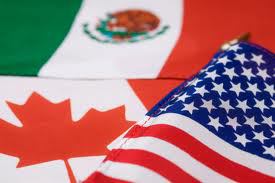“It is the maxim of every prudent master of a family, never to attempt to make at home what it will cost him more to make than to buy . . . . If a foreign country can supply us with a commodity cheaper than we ourselves can make it, better buy it of them with some part of the produce of our own industry, employed in a way in which we have some advantage.”
-Adam Smith, An Inquiry into the Nature and Causes of the Wealth of Nations, 1776
IPI believes the United States should aggressively pursue trade liberalization, which includes a willingness to lower our own trade barriers even when other countries do not respond reciprocally. Ideally, those efforts include multilateral agreements, such as the Trans-Pacific Partnership, but bilateral agreements can also promote freer trade.
American consumers bear the brunt of the protectionist impulse through higher prices on consumer goods, and American workers are best served when liberalized trade policies facilitate the export of American products throughout the world. At a time when protectionist sentiments are growing, it is important to assert that the U.S. and its workers have nothing to fear from trade, and everything to gain.
Why North America needs an energy free-trade zone
A North American energy free-trade zone would lead to energy self-sufficiency much more quickly, while dramatically increasing economic growth for all three countries.
Throwing Away the World's Biggest Economic Opportunity
So long as India blatantly disregards the intellectual property of its trading partners as part of its economic strategy, India will continue to throw away the world’s biggest economic opportunity.
Coalition Letter to Congress Regarding U.S. Sugar Policies
IPI joins with the American Conservative Union and other free market advocates urging a halt to all market-manipulating sugar policies world wide.
Small U.S. mobile carriers oppose Samsung sales ban
A group of small mobile phone carriers in the United States has sent a letter to the U.S. International Trade Commission expressing opposition to a possible sales ban of Samsung Electronics' mobile devices in the country.
Assistant USTR Optimistic About Strong, Balanced Intellectual Property Provisions in TPP
Assistant U.S. Trade Representative-Intellectual Property and Innovation Stan McCoy is optimistic that negotiators of the Trans-Pacific Partnership can come to a "world-class result" for "strong and balanced" intellectual property protection, despite ongoing debate over the rigidity of those protections, he said at an IPI forum commemorating World Intellectual Property Day.
NZ Plain Packaging Regulation Violates WTO Rules
The New Zealand government should reject a plain packaging regulatory proposal for tobacco products as it would violate WTO rules as well as intellectual property agreements, and also expose consumers to harmful counterfeit products, said IPI in comments filed today.
A roadblock on Texas exports to Russia
Texans who want to increase their opportunities could have that chance this summer when Russia officially joins the World Trade Organization. But unless Congress acts quickly, the United States, and especially Texas, will miss out.
The Power of FUD
The opposition to the TPP consists of accusations of secrecy driven by anti-globalization ideologues.
Benefits of IP Protection for Developing Countries
Presentation delivered to Trans-Pacific Partnership Stakeholder Event in San Diego, California on July 2, 2012.
The Seeds of a Successful Trade Policy
It's time to focus on one of the U.S.'s trade success stories: agriculture, and specifically genetically modified (GM) seeds.






